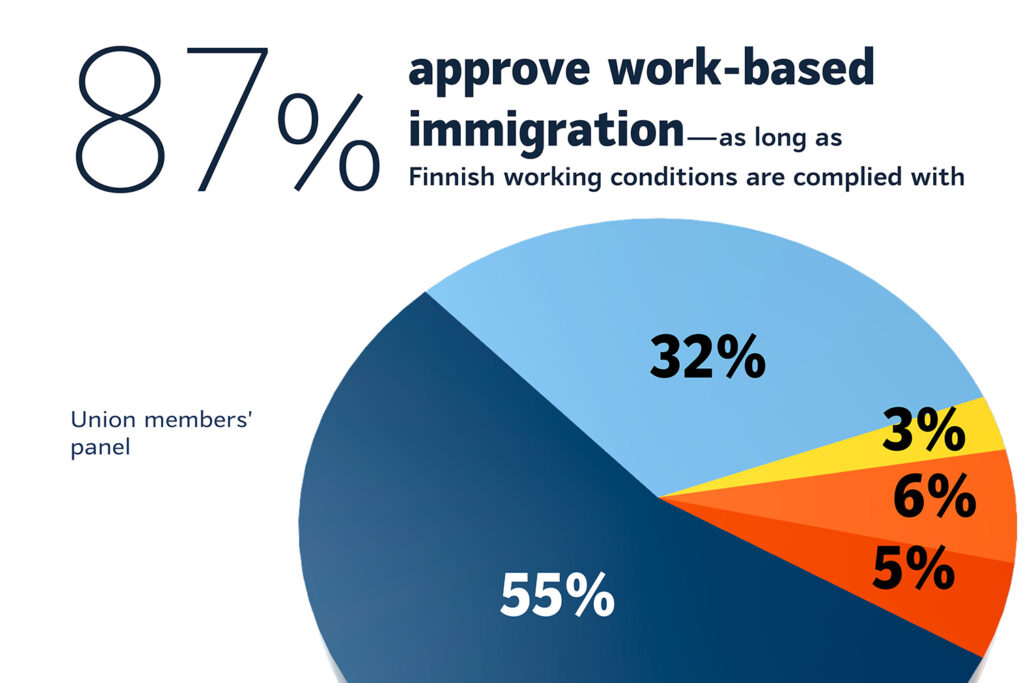What effect does coronavirus have on workplaces?
On 16 March 2020, the Finnish Government declared a state of emergency for the first time since the Second World War. The coronavirus pandemic demands extraordinary measures to protect people and keep the country functioning.
15.4.2020
The measures have an effect on working places of the Industrial Union members, too. Everyone who can is encouraged to work from home in order to diminish the risk of infection, but with industrial jobs this is often not possible. If agreed with the employer working from home, then pay should remain the same as it is normally.
A fear of becoming ill or sick is not reason enough to stay home from work. This is only possible if agreed with the employer. In normal cases staying at home through personal choice is not paid.
If the employer forbids an employee to come to work, a normal wage or salary must be paid.
Even in times of a pandemic employers can not unilaterally reduce, move or withdraw approved annual leave. All changes need the acceptance of the employee.
WHAT IS QUARANTINE?
Infected people might be required to go into quarantine. This means isolation from other people, usually at home, for a certain time. The decision is made by a doctor who is responsible for infectious disease control.
Kela, the Social Insurance Institution of Finland can pay sickness allowance for those employees in quarantine. To receive this, isolation is required and going to work is not allowed. A doctor’s order is necessary for such a quarantine.
The allowance is as much as the loss of earnings. Quarantine is not the same thing as the recommendation of the Government to stay at home for two weeks after returning to Finland from abroad.
TEMPORARILY LAY-OFFS AND REDUNDANCY
A big number of temporary lay-offs is to be expected, and there is even the possibility of redundancies (losing one’s job permanently).
On 18 March, the labour market organisations agreed that in these exceptional circumstances the normally required two weeks negotiation time for temporary lay-offs should be cut to five days in the private sector.
The law has now been amended accordingly and the Industrial Union has made similar changes in its collective agreements. These changes will last until the temporary changes in the labour legislation remain in effect, which is until the end of June this year.
If an employer hires new staff, they have an obligation to offer jobs first to those former employees made redundant from similar jobs. Now, in the amended law and Industrial Union collective agreements, this time has been extended temporarily to nine months from the previous four to six months.
Those facing temporary lay-offs can get unemployment benefit from the Industrial Union unemployment fund. The Union Fund will help in case of redundancies, too. Please see details on their web page. The information is also in English.
The Fund says that it is prepared for situations caused by the virus. They are ready to handle a growing number of applications and their own finances are solid.
UNION CANCELS SEVERAL EVENTS
As public gatherings are likely to increase the risk of infection, the Industrial Union has cancelled all events and training until the end of June. For the time being, the Union regional offices will not give face-to-face member services.
The situation is changing all the time and the changes can be dramatic and quick. It is good to follow of all official guidance for the latest information.
Finnish institute for health and welfare.
TEXT HEIKKI JOKINEN




